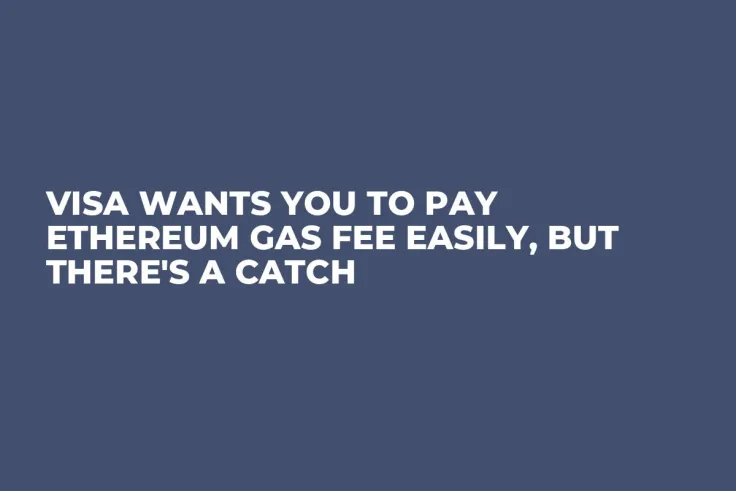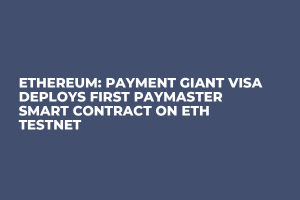
Disclaimer: The opinions expressed by our writers are their own and do not represent the views of U.Today. The financial and market information provided on U.Today is intended for informational purposes only. U.Today is not liable for any financial losses incurred while trading cryptocurrencies. Conduct your own research by contacting financial experts before making any investment decisions. We believe that all content is accurate as of the date of publication, but certain offers mentioned may no longer be available.
American multinational payment giant Visa Inc is proposing a revolutionary way to pay for gas fees relating to Ethereum's ERC 20 transactions. According to a statement shared by the payment firm's tech team, the payment option will allow users making transactions on the Ethereum blockchain to pay the associated fee in fiat through their Visa cards.
This approach will relieve users running transactions on the numerous decentralized applications (dApps) running transactions on the Ethereum protocol. The company said the solution had been duly tested on the Ethereum Goerli Testnet as it took advantage of the paymaster innovation.
"Our experiment aims to offer a promising approach to substantially addressing the challenges of blockchain-based transactions," the technical team wrote. "By leveraging the innovative concept of a paymaster, in conjunction with account abstraction and the ERC-4337 standard, we explored the potential for a process that could redefine blockchain-based transactions."
According to the design of the Visa gas fee payment feature, the move to integrate its solution will entirely be subject to the choice of each developer building on the Ethereum protocol. A crucial flexibility that is introduced is that users now generally have options, of which Visa can guarantee a high degree of speed compared to others.
Obvious catch in offering
That the Visa gas fee payment solution is revolutionary, just like its other products, is not up for debate, but it may come at a very crucial tradeoff as showcased in the likely event that the company charges its own fees at some point in the near future.
Though the company was silent about this in its update, any implementation of additional fees will make the service more efficient but significantly more costly. Only time will tell whether or not traders will shun this tradeoff to embrace the new alternative.

 Dan Burgin
Dan Burgin U.Today Editorial Team
U.Today Editorial Team